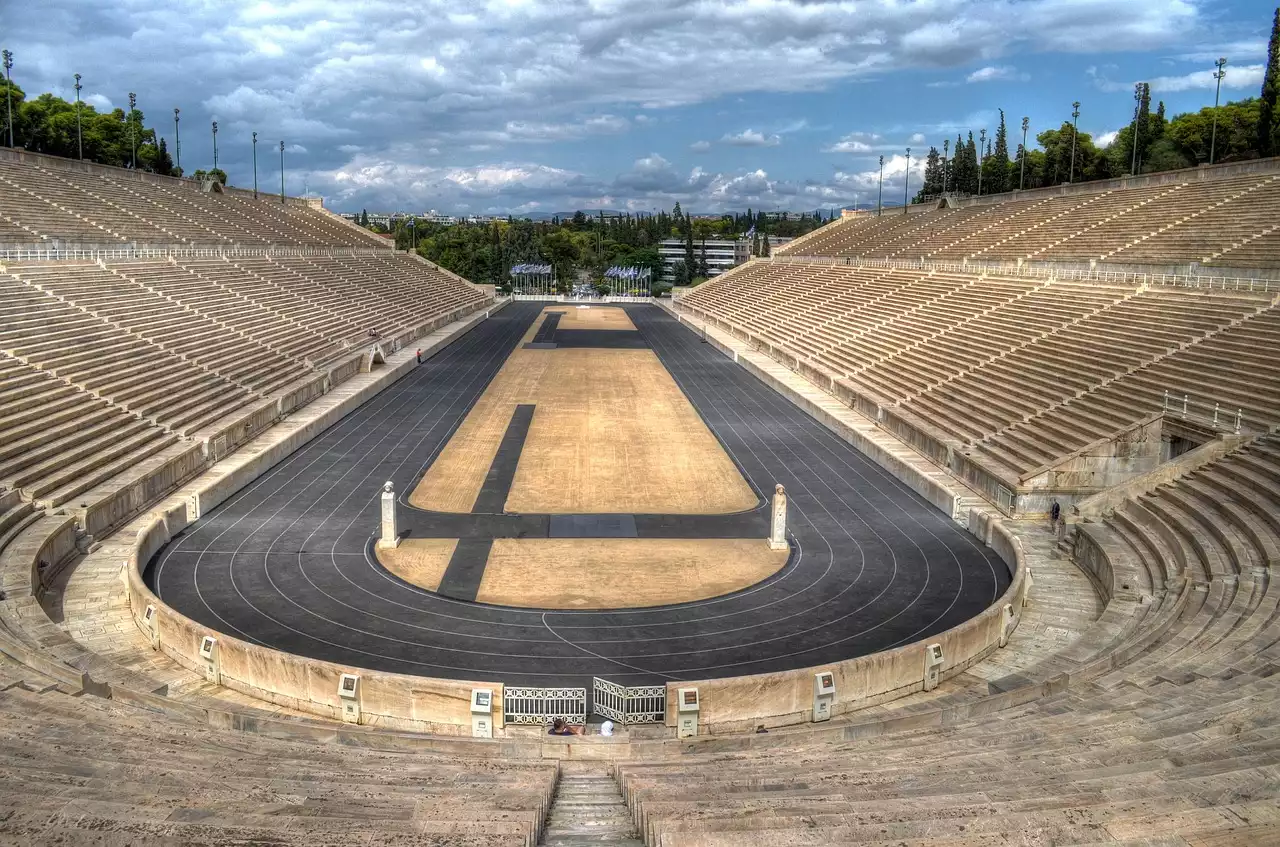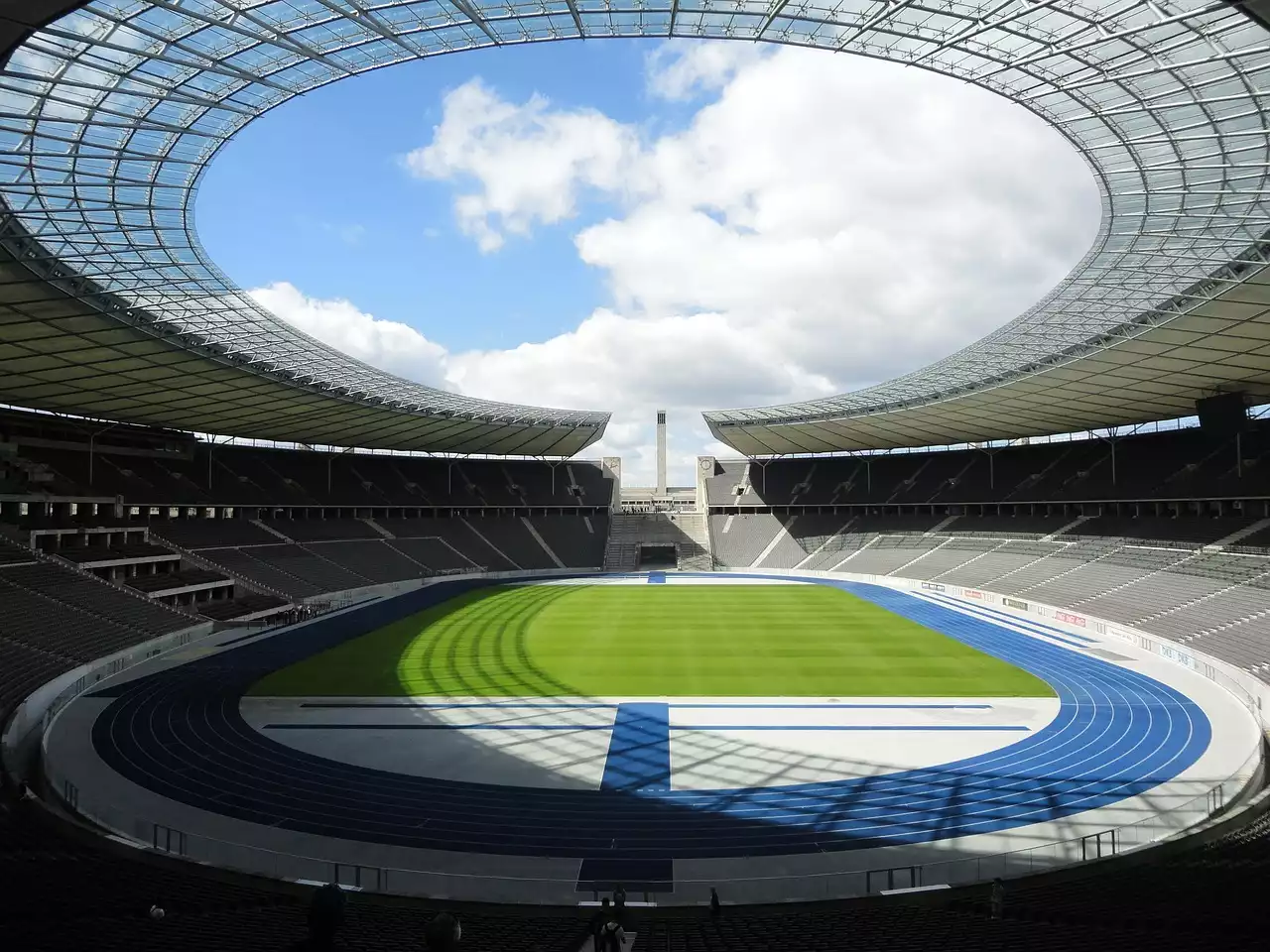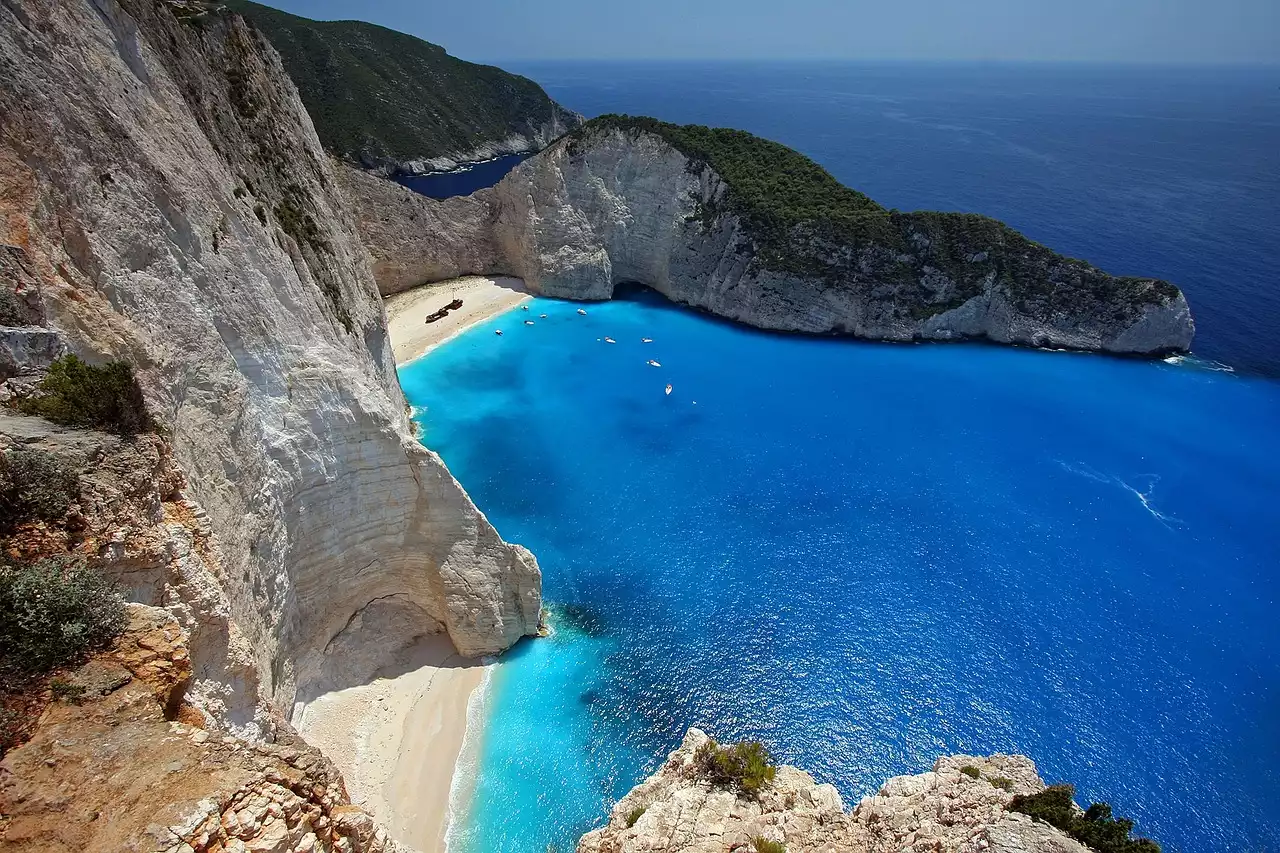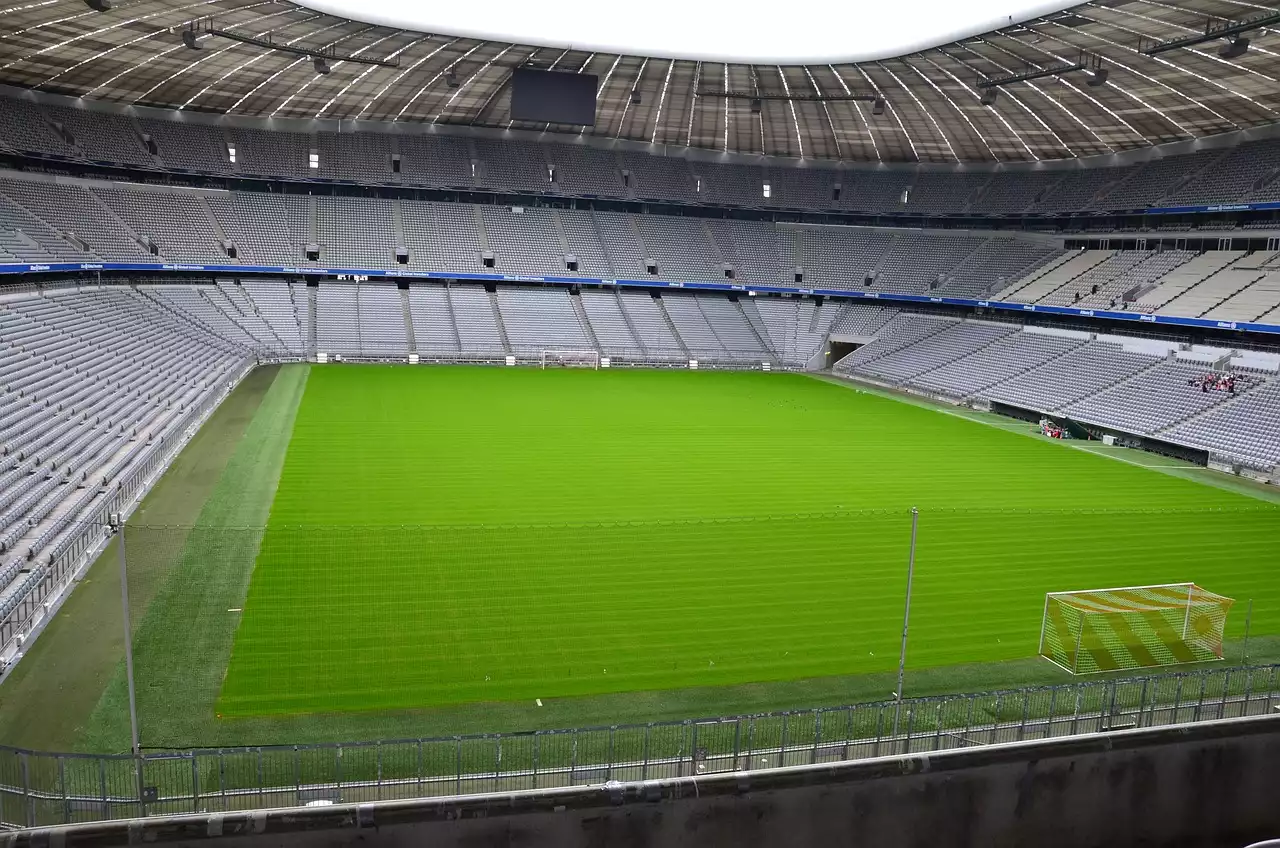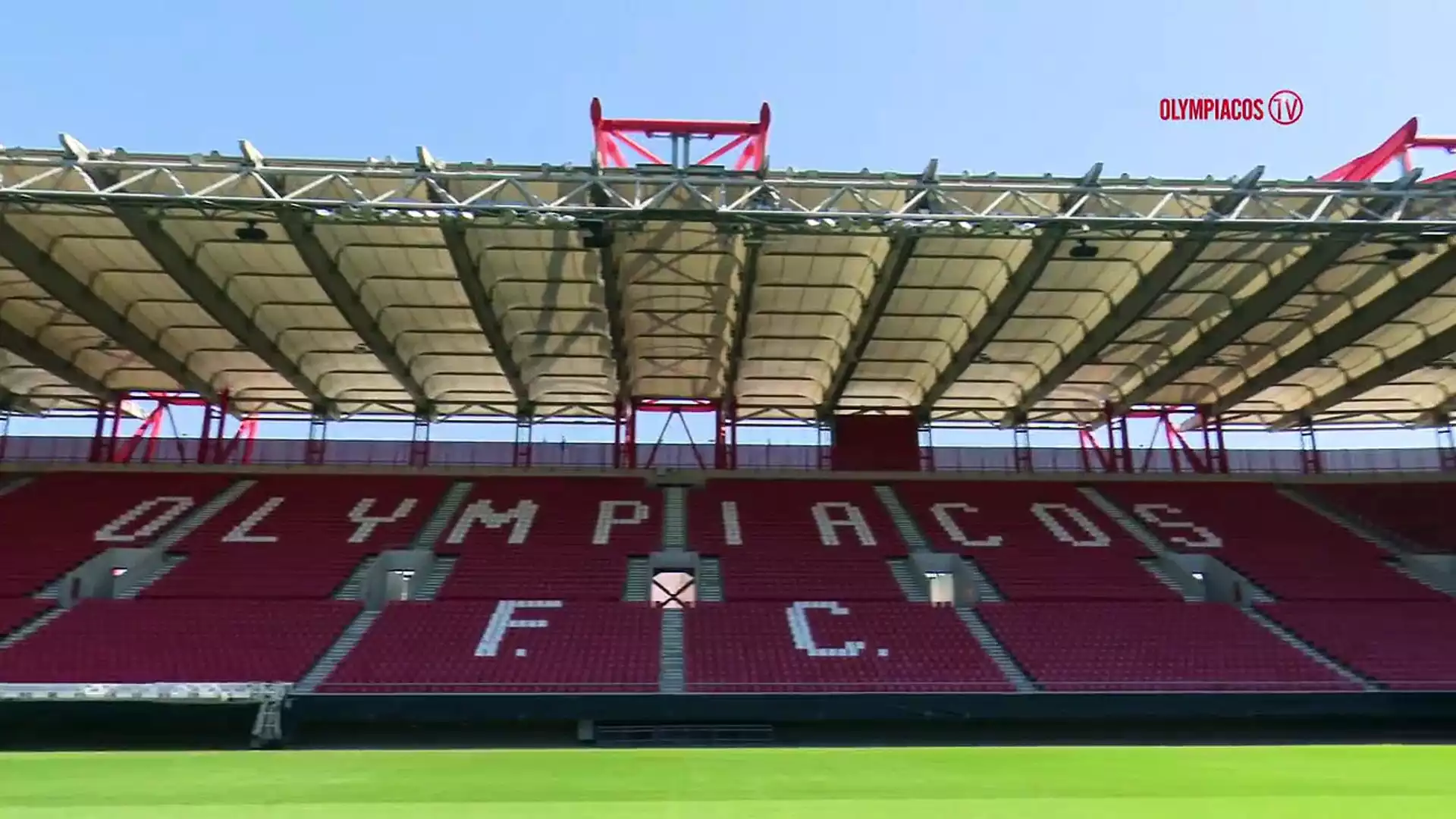Historical significance of Super League 1 stadiums
The Super League 1 stadiums hold immense historical significance in the Greek cultural landscape. These stadiums have stood witness to countless football matches, each leaving its mark on the nation's history. The Athens Olympic Stadium, also known as the "Spyros Louis Stadium," stands out as a symbol of national pride. Built for the 2004 Olympic Games, it not only hosted the opening and closing ceremonies but also became the stage for unforgettable football moments. The stadium's grandeur and architectural brilliance pay homage to the ancient stadiums of Greece, with its iconic curved roof resembling the Panathenaic Stadium. The Panathenaic Stadium, known as the "Marble Stadium," is a marvel of ancient Greek architecture and served as the venue for the first modern Olympic Games in 1896. The Athens Olympic Stadium's design pays homage to this ancient gem, seamlessly blending the old with the new.
Another historic stadium is the Karaiskakis Stadium, located in Piraeus. Named after the Greek hero Georgios Karaiskakis, this stadium has been the home ground of Olympiacos FC since 1895. It has witnessed numerous triumphs and victories, becoming an integral part of the club's identity. The stadium's history is intertwined with the struggles and successes of Olympiacos FC, reflecting the passion and dedication of the team and its supporters. The Karaiskakis Stadium stands as a testament to the enduring spirit of Greek football and the unwavering loyalty of its fans.
Architectural features of Super League 1 stadiums
Super League 1 stadiums are not just sporting venues; they are architectural masterpieces that showcase Greece's rich heritage. The Athens Olympic Stadium, designed by renowned architect Santiago Calatrava, is a prime example of modern architectural excellence. Its distinctive roof, resembling a white sail, is an engineering marvel that blends seamlessly with the surrounding landscape. The stadium's capacity to hold more than 69,000 spectators ensures a vibrant atmosphere during matches, making it one of the most iconic stadiums in Europe.
The Karaiskakis Stadium, on the other hand, exudes a unique charm with its traditional Greek architecture. The horseshoe-shaped stands create an intimate setting, allowing fans to be close to the action. The stadium's proximity to the sea adds to its allure, providing breathtaking views of the Aegean Sea and Piraeus harbor. The combination of modern amenities and traditional Greek design elements makes Karaiskakis Stadium a truly remarkable venue.
Role of Super League 1 stadiums in Greek society
Super League 1 stadiums play a vital role in Greek society, extending beyond football matches. These stadiums serve as gathering places where people from all walks of life come together to support their favorite teams. The love for football transcends societal boundaries and unites Greeks of different backgrounds, fostering a sense of community and camaraderie.
Moreover, Super League 1 stadiums act as platforms for social integration and inclusion. Football matches attract people from diverse backgrounds, offering an opportunity for cultural exchange and interaction. The stadiums become melting pots of different traditions, where fans celebrate their shared passion for the sport, leaving aside their differences.
Additionally, Super League 1 stadiums contribute to the physical and mental well-being of the Greek population. The excitement and thrill of attending matches provide an escape from the pressures of everyday life, allowing fans to unwind and enjoy moments of pure joy. The stadiums become spaces where people can forget their worries and immerse themselves in the electric atmosphere, creating memories that last a lifetime.
Cultural events and traditions at Super League 1 stadiums
Super League 1 stadiums are not solely dedicated to football matches; they also host cultural events and traditions that celebrate Greece's rich heritage. These events offer a unique opportunity for visitors to experience Greek culture in a vibrant and dynamic setting.
One such event is the opening ceremony of the Olympic Games, which takes place at the Athens Olympic Stadium. The ceremony showcases Greece's cultural legacy, featuring traditional music, dance, and theatrical performances. It serves as a reminder of Greece's historical contributions to the world and sets the stage for the sporting events that follow.
Another cultural tradition at Super League 1 stadiums is the "Ultras" fan culture. Ultras are passionate supporters who create a lively and energetic atmosphere during matches. They chant, sing, and wave flags and banners, showcasing their unwavering dedication to their respective teams. The Ultras' commitment to their clubs and their ability to create an electric atmosphere at the stadiums contribute to the unique cultural experience of attending a Super League 1 match.
Economic impact of Super League 1 stadiums
Super League 1 stadiums have a significant economic impact on Greece. The influx of visitors attending matches not only benefits the stadiums but also stimulates the local economy. Fans traveling from different parts of Greece and abroad contribute to the tourism sector by booking accommodations, dining in local restaurants, and exploring nearby attractions. This generates revenue for local businesses and creates job opportunities, boosting the overall economy.
Furthermore, the stadiums themselves serve as venues for various events, such as concerts and conferences, attracting a diverse range of visitors. These events bring additional revenue to the stadiums and the surrounding areas, further contributing to the local economy.
Preservation and restoration efforts for Super League 1 stadiums
Preserving and restoring Super League 1 stadiums is crucial in maintaining Greece's cultural heritage. These stadiums are not only sporting venues but also historical landmarks that deserve the utmost care and attention.
Efforts are underway to ensure the preservation of iconic stadiums such as the Athens Olympic Stadium and the Karaiskakis Stadium. These initiatives involve regular maintenance, restoration of historical elements, and the integration of modern technologies to enhance the spectator experience while preserving the stadiums' original charm. By investing in the preservation of these stadiums, Greece showcases its commitment to preserving its cultural heritage for future generations to appreciate.
Tourist attractions and experiences at Super League 1 stadiums
Super League 1 stadiums have become significant tourist attractions, drawing visitors from around the world. The Athens Olympic Stadium, with its impressive architecture and historical significance, offers guided tours that provide an in-depth look into its design and the stories behind its construction. Visitors can explore the stadium's facilities, including the Olympic Museum, which houses artifacts and memorabilia from past Olympic Games.
The Karaiskakis Stadium, with its vibrant atmosphere and breathtaking views, offers visitors a chance to witness a live football match. The intense passion and energy of the fans create an unforgettable experience, allowing visitors to immerse themselves in Greek football culture.
Collaborations between Super League 1 stadiums and cultural institutions
Super League 1 stadiums often collaborate with cultural institutions to promote Greece's cultural heritage. These partnerships create opportunities for cultural exchange and provide a platform for artists and performers to showcase their talents.
For instance, the Athens Olympic Stadium has hosted numerous concerts featuring renowned Greek and international artists. These events combine the power of music with the stadium's grandeur, creating a unique and memorable experience for both artists and spectators.
Additionally, collaborations between Super League 1 stadiums and museums or art galleries have resulted in exhibitions and installations that celebrate Greek art and history. These initiatives not only attract visitors but also contribute to the overall cultural enrichment of the stadiums.
Super League 1 stadiums in Greece are not just venues for football matches; they are an integral part of the nation's cultural heritage. These stadiums embody the spirit of Greece, preserving traditions, fostering a sense of belonging, and showcasing the rich history and architectural brilliance of the country. Through their historical significance, architectural features, cultural events, and collaborations with cultural institutions, Super League 1 stadiums contribute to Greece's enduring cultural legacy. As visitors step into these sacred grounds, they are transported into a world where the past intertwines with the present, creating an experience that is both awe-inspiring and unforgettable.
